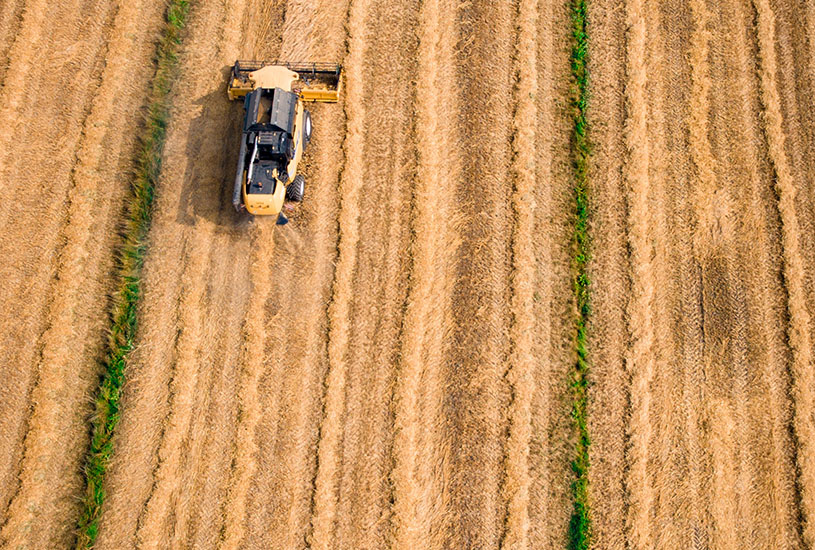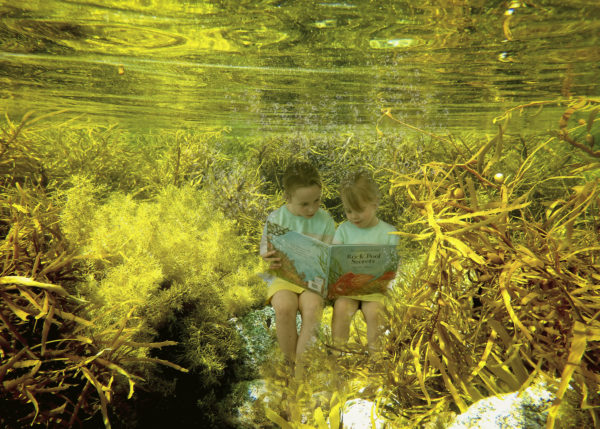A Deakin PhD researcher is working hard on ways to lift crop yields, and farmers’ livelihoods.
Young Farmer of the Year Anika Molesworth, who was recently announced as a finalist for the NSW Young Australian of the Year, is passionate about sustainable agriculture and helping agribusiness adjust to climate change.
Ms Molesworth is a PhD researcher with Deakin University’s Centre for Regional and Rural Futures (CeRRF) based at Griffith, NSW. She divides her research between Australia and Southeast Asia.
With her Masters in Sustainable Agriculture focusing on how farmers use crop residues for livestock feed in integrated crop-livestock systems, Ms Molesworth spent much of 2015 in Laos researching the country’s agricultural practices.
Her PhD research project “Soil amelioration using organic amendments in precision landformed systems: A study of Australia and Cambodia,” will investigate how soil physical, chemical and biological properties can be improved by incorporating local agricultural by-products, in turn improving soil fertility and crop production.
“Feeding a growing global population with reduced environmental footprint is one of the defining challenges of our time. And I love being able to play a small role in addressing that,” Ms Molesworth said.
Ms Molesworth, who represented her compatriots at the United Nations Conference on Climate Change last year, is enthusiastic about building resilience in agrarian communities to current and future challenges and is a strong advocate both within and outside of agriculture for action on climate change.
“Knowledge is key – to understand how our world works, and ensure the best human interaction with it,” she said.
[testimonial_text]Agricultural science is developing new technologies and management practices to aid farmers, and researchers in this field are making a meaningful contribution to food security and the protection of our natural resources. They are also helping to ensure the vibrancy of our rural communities.[/testimonial_text]
[testimonial_picture name=”Anika Molesworth” details=”Centre for Regional and Rural Futures”]
 [/testimonial_picture]
[/testimonial_picture]In addition to her research work, Ms Molesworth runs Climate Wise Agriculture, a “knowledge sharing platform for climate-smart practices,” and heads the International National Trusts Organisation’s Sustainable Farms program for the conservation of natural and cultural heritage on farming properties around the world.
While she ultimately missed out on becoming NSW Young Australian of the Year, Ms Molesworth said she was both proud and humbled at being a finalist.
“It is a fantastic opportunity to shine the spotlight on the importance of agricultural research and encourage young scientists to look at careers in rural communities,” she said.
“New science provides significant benefits to the agribusiness sector, including reducing uncertainty, boosting productivity, lowering input and production costs and reducing environmental impacts. Investing in agricultural science is investing in our future.”
Apart from promoting climate change awareness, inspiring youth and researching solutions to food security, Ms Molesworth also helps manage her family’s sheep station near Broken Hill.
“My love of the land arose from the expansive red sand country of the Far West of NSW. There’s a raw untamed beauty out there – it’s a challenging, ancient environment and extremely fragile,” Ms Molesworth said.
CeRRF Director Dr David Halliwell said Ms Molesworth is a passionate young researcher with a strong connection to the land.
[testimonial_text]Anika has seen first-hand the extremes that drought and a changing climate had on her parents’ sheep farm and is motivated to raise awareness of these issues and take action to improve the situation[/testimonial_text]
[testimonial_picture name=”Dr David Halliwell” details=”CeRRF Director”]
 [/testimonial_picture]
[/testimonial_picture]“Her concerns extend globally and her work in Laos and Cambodia demonstrate her concern and understanding that climate change is a global phenomenon that doesn’t recognise borders, cultures or countries.”



